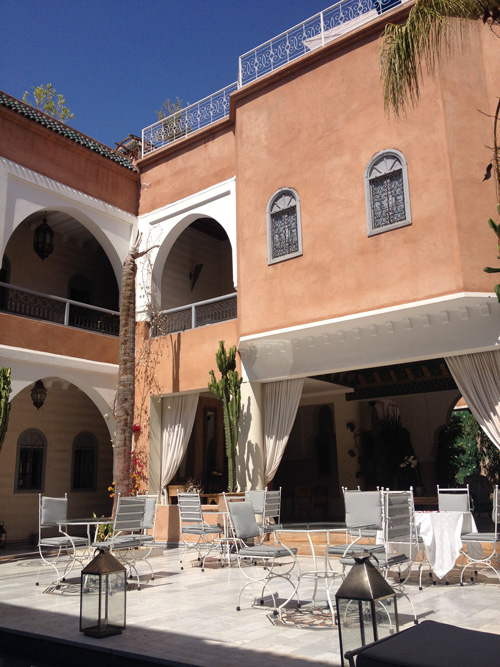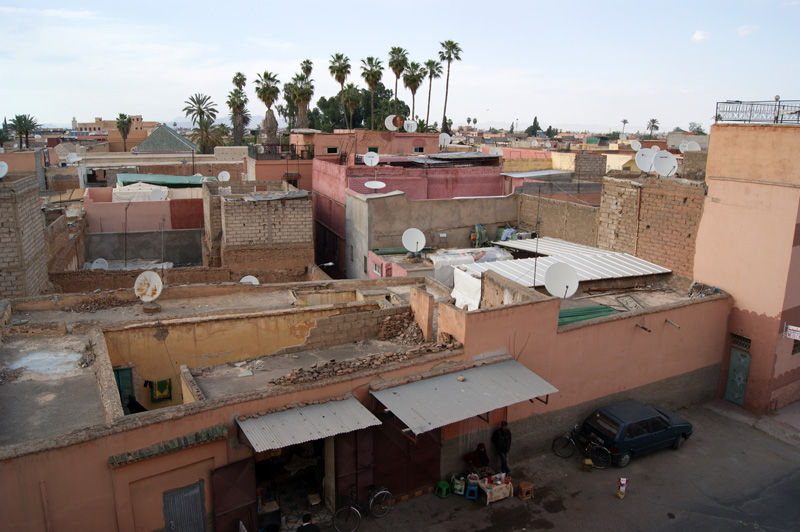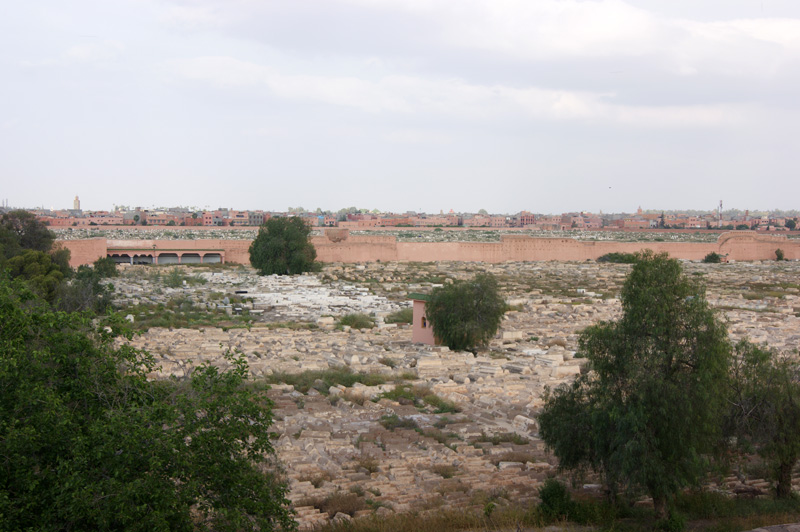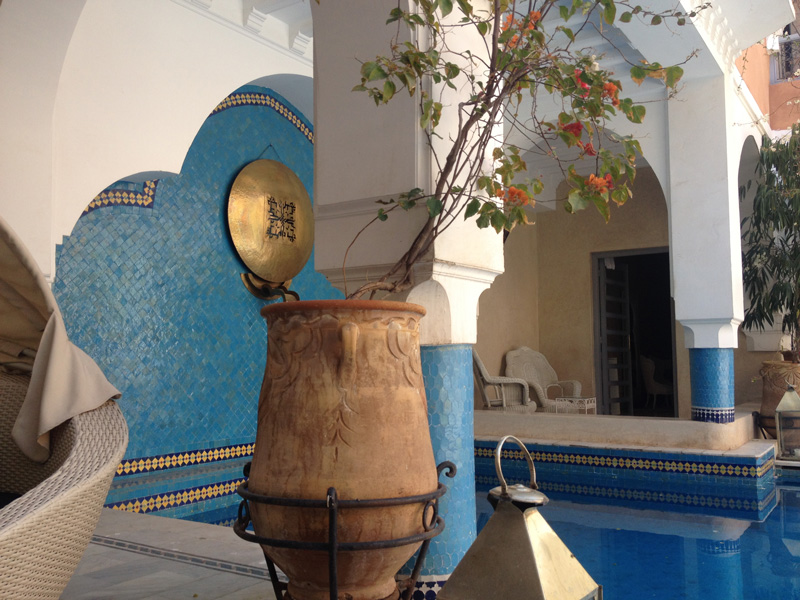Morocco looked hot from 35,000ft up. Blisteringly hot. I gazed down from the window of our British Airways A319 and saw reddish desert sands, dusty villages and little in the way of life.
There was water – the sun’s blinding reflection proved it – but the artificial irrigation channels and anorexic streams didn’t look like much to write home about in the great scheme of things. I spotted dried river beds amid the dusty scrub, the occasional farmstead and hamlet. Heaven knows what the locals survived on.
As we flew closer to Marrakech huge clouds bubbled up, creating fluffy white mountains in the sky and threatening thunderous storms. And the land became greener, irrigated to supply the city with vital fruit and vegetables. Regimented olive groves surrounded the city.

We noticed the heat and humidity the moment we stepped outside the aircraft, as we waited in the queues at passport control. It took forever for our immigration officer, a distracted woman lazily chewing gum, to process our paperwork. It wasn’t much of a welcome.
Our riad, the Ksar Anika, had arranged a cab for us and we trundled into town along wide boulevards, past more olive groves and families who were spending the evening watching the planes taking off and landing.

The sun was setting as we found ourselves driving into the confined spaces of the old town, the golden evening light making the pinks of the old city walls glow even richer. For a moment Marrakech looked like a toy town, something out of a fairy tale or the set of a Hollywood movie.
We drove past the royal palace and found ourselves near the old Jewish cemetery, not realising that our riad was actually in the heart of the city’s old Jewish quarter. Historic but poor, it was some way south of the city’s heart.
Riads are rarely much to look at from the outside but the interior of the Ksar Anika was as luxurious and traditional as I’d been led to expect. Built around two courtyards, one with a small pool, it was a haven from the noise and chaos outside.

We settled in to enjoy a mint tea from our welcoming hosts. Traditional furnishings and decorations reflected the talents of the city’s master craftsmen, including some stunning inlaid wooden tables and chairs.
Our room was large, airy and cool with no TV or radio. So, with our room fronting the road, we were entertained instead by the noises of the street – craftsmen at work, donkeys hauling carts, the never-ending stream of motorbikes and hooting car horns.
The mud-brick buildings opposite, all sporting large satellite dishes, looked broken down and spoke to the poverty of the district.

We didn’t need to eat, having been fed well on the plane, and we were too tired to venture out to explore. So we stayed in the cool courtyard and had a few drinks instead.
I was looking forward to my week but for one thing – a dreadful cold that left me horribly bunged up. So I went to bed dosed up with Casablanca lager and Sudafed. And hoped for the best.

